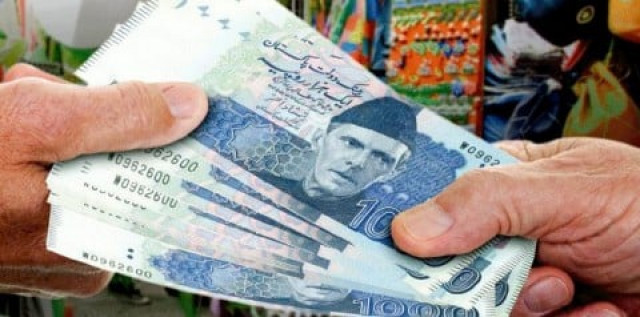Pakistan pockets remittances amounting to $18.4b
Increase 16.5% year-on-year; June’s tally 9.5% higher

PHOTO COURTESY: NEW PAKISTAN
Remittances amounted to $15.8 billion in the preceding fiscal year. Pakistanis based in foreign countries sent home $1.8 billion in June, which is 9.5% higher than the remittances received in the preceding month of May.
Country-wise breakdown
Inflows from Saudi Arabia were the largest source of remittances in 2014-15. They amounted to over $5.6 billion in July-June, up 19% from the preceding 12 months.
Remittances received in July-June from the United Arab Emirates (UAE) increased 35.3% to $4.2 billion on a year-on-year basis. Inflows from the UAE registered the largest increase from any major remittance-sending country during 2014-15, SBP data shows.
Read: SBP instructions: Fresh currency notes to the public
Remittances from the United States and the United Kingdom remained $2.6 billion and $2.3 billion, respectively, in July-June. The year-on-year increase in remittances from the US and the UK has been 4.8% and 4.9%, respectively.
Remittances from Gulf Cooperation Council (GCC) countries, excluding Saudi Arabia and the UAE, clocked up at $2.1 billion in July-June, which is 15.6% higher than the remittances received from these countries in the preceding fiscal year. Remittances from Kuwait in 2014-15 equalled $748.1 million while those from Oman, Bahrain and Qatar amounted to $666.8 million, $389 million and $347.5 million, respectively.

This means the overall share of the oil-rich GCC countries in Pakistan is almost 65%. Many analysts fear remittances from these countries may dwindle going forward as their governments begin to scale back infrastructure spending in the wake of a sharp fall in global oil prices.
Oil and Pakistan
Any major fallout of the oil price slump on the remittance inflows will be detrimental for the Pakistani economy. Absent remittances, a perennial balance of payment crisis would be inescapable, as they cover up usually around 90% of the country’s trade deficit.
Read: Currency: Rupee stable against dollar
“The good news is that despite the oil slump, the GCC is still spending on infrastructure … there are no short-term concerns for remittances inflows into Pakistan from this region,” the SBP said in its second quarterly report.
Saying that the GCC governments’ spending plans have not been affected by declining oil prices due to the large sovereign funds, the SBP noted the status quo may not continue “much longer”.
“A continuous depletion of these reserves would eventually start biting into their fiscal spending if oil prices fail to recover. The pace of Pakistan’s remittance growth cannot remain immune to the oil slump indefinitely,” the SBP said.
Remittances received from Norway, Switzerland, Australia, Canada, Japan and ‘other countries’ during June amounted to $110.53 million, up 7.7% from the remittances received from these countries in the same month of 2013-14. The monthly average of remittances during 2014-15 remained $1.5 billion, up from the monthly average of remittances amounting to $1.3 billion received in July-June of 2013-14.
Read: IMF cuts Pakistan’s growth forecast to 2.6%
Remittances in the first six months of the current fiscal year increased regardless of the strong wave of political instability that began in August with sit-ins by opposition parties and fizzled out after the attack on Army Public School in December. Overseas Pakistanis sent remittances amounting to $8.98 billion in the first half of 2014-15, showing a year-on-year increase of 15.26%. Remittances had grown 13.7% in 2013-14, which means the year-on-year increase of 16.5% in 2014-15 was notably higher than preceding year.
Published in The Express Tribune, July 14th, 2015.
Like Business on Facebook, follow @TribuneBiz on Twitter to stay informed and join in the conversation.



















COMMENTS
Comments are moderated and generally will be posted if they are on-topic and not abusive.
For more information, please see our Comments FAQ